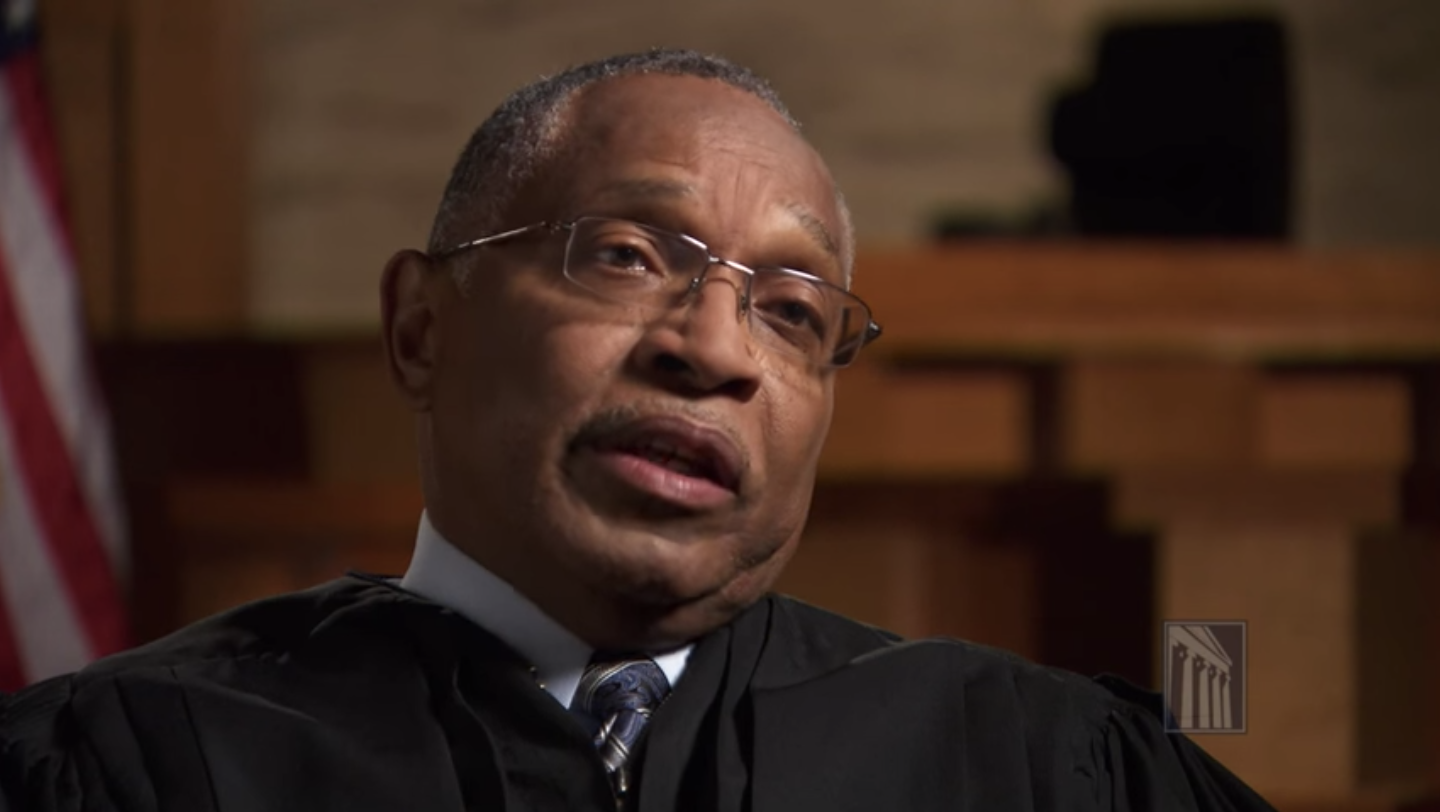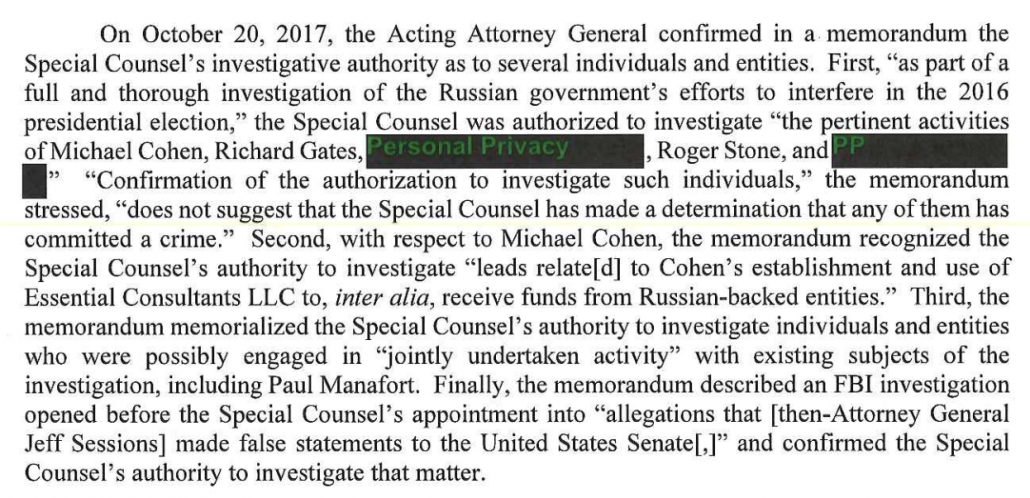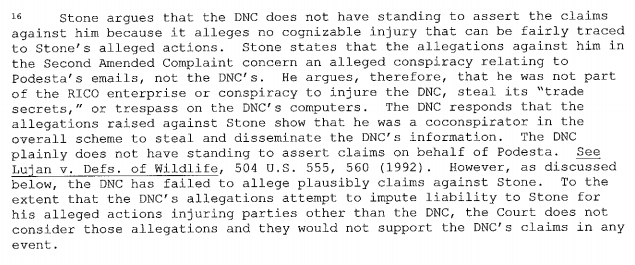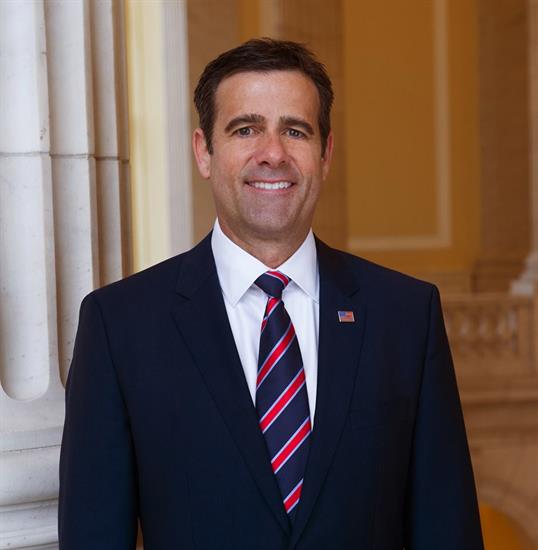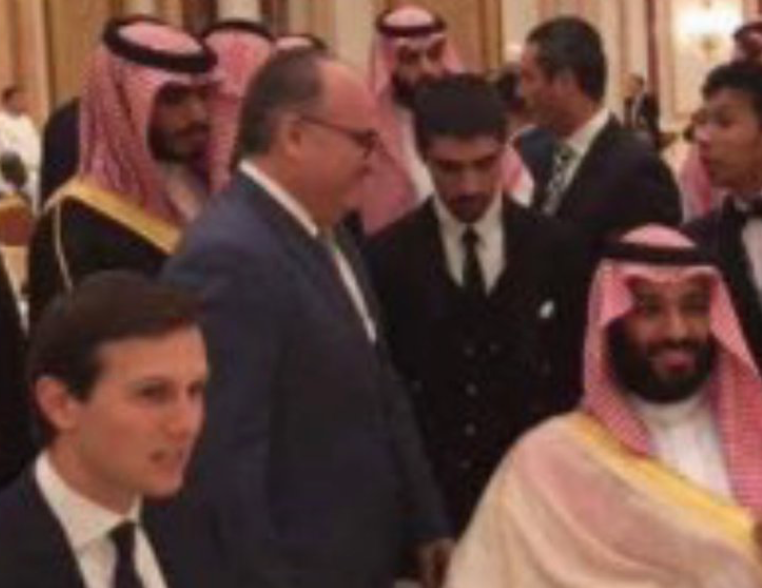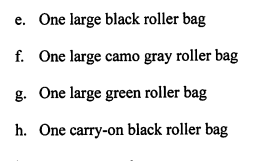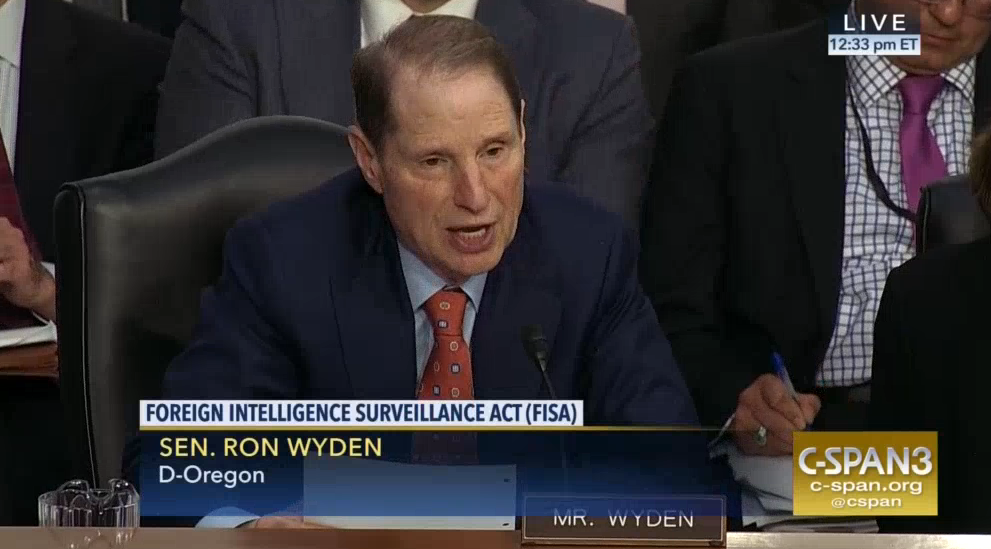Last night, President Trump announced that Director of National Intelligence Dan Coats is resigning, effective August 15, and will be replaced by Congressman John Ratcliffe, who is totally unqualified for the job, but who said mean things to Robert Mueller the other day, which makes him the perfect Trump pick.
There will be many controversial steps in installing Ratcliffe (not least that Sue Gordon, currently the Principal Deputy, should take over as Acting DNI when Coats leaves, but Trump seems to have a plan to ignore the law that mandates that).
But I also think Ratcliffe’s confirmation process will be troubled, and not just because he’s totally unqualified for the job. Because he has been one of the key players into the Republican investigation into the Trump investigation, there are a bunch of transcripts of him acting really stupid in depositions, even more stupid than he acted in public in the Mueller hearing. As I noted in this post, in Michael Cohen’s second interview with HPSCI, for example, Ratcliffe got his ass handed to him by Cooley Law graduate Cohen.
The Republican conspiracy theory about Bruce Ohr depends on a series of misunderstandings
One of the most alarming examples involves the joint Oversight/Judiciary interview of Bruce Ohr.
The Republicans at the time (and still, I assume) believed that Bruce Ohr served as some secret back channel to keep feeding dossier tidbits to the FBI even after Christopher Steele had been fired as an informant for sharing details of his investigation with the press, part of a nefarious plot by Hillary to keep Steele’s intelligence reports flowing at the FBI. The evidence at least suggests that, instead, FBI was using Ohr as a way to monitor what Steele was doing while keeping the Brit completely firewalled from the actual investigation. In spite of being an expert on the topics implicated by the Russian investigation, Ohr was not read into the investigation or the Mueller probe, and had a relationship with Steele going back years. So he was a good way to get informed updates from Steele without risking Steele might learn more about the investigation.
Mr. Ohr. No. I think they just say thank you for the information, and then it disappears into the FBI.
Republicans also believe that Ohr should not have shared information with DOJ and FBI because his wife, Nellie, was doing contract work with Fusion GPS at the time. Virtually every time the Republicans talk about her role, however, they exhibit rank ignorance of the full scope of Fusion’s work for Democrats and Nellie’s role in that, as well as the way that Steele’s work was largely independent of those other efforts (though did respond to questions posed as part of it).
Mr. Ratcliffe. And if you did, then they would have known that your wife was being compensated in part for contributions to what we’ve referred to as the Steele dossier?
Mr. Ohr. Well, just to be careful about that, my wife was researching various entities who are some of the same people mentioned in the dossier.
My understanding of the dossier, and I didn’t look at it that carefully, but it seems to be reports from Chris Steele to Fusion GPS.
So I don’t think my wife’s information, as far as I knew, was reported in those specific reports. It was certainly provided to Fusion, which had both Chris Steele’s reports and my wife’s research.
Nellie did research that didn’t get published (though likely fed a few stories) that probably proved more accurate than Steele’s HUMINT and as such should have been the focus of the oppo campaign. But the public record (and Ohr’s impression knowing Steele’s past work) is that what is known as the dossier was entirely Steele’s work, not edited by Fusion or integrated with information otherwise obtained by them.
Some Republicans (though not Ratcliffe) also seemed to assume in the hearing that it is remarkable that a women qualified to do research on Russia would get hired to do research on Russia, and instead assume there’s some secret plot that got her hired. But as Bruce Ohr made clear several times in the hearing, he alerted the FBI of his wife’s tie to the contractor paying Steele from the very beginning.
Mr. Meadows. So you gave no commentary on the validity of what the source told you or what you thought? You gave no commentary?
Mr. Ohr. I —
Mr. Meadows. Your 302s don’t suggest that.
Mr. Ohr. No. I warned them that my wife work for Fusion GPS.
Mr. Meadows. When did you do that?
Mr. Ohr. When I first spoke with Mr. McCabe
But the core of the frothy Republican conspiracy about Ohr is an effort to shift the timeline of when Steele started feeding information to the FBI back before the investigation into Trump’s associates got opened, so as to be able to claim that Steele’s information predicated not just Carter Page’s FISA application, but the investigation as a whole.
The information Christopher Steele shared in the July 30 meeting is not the same information that appears in the dossier
An early attempt to do this was to point to communications between Steele and Ohr — who had been sharing information on Russian organized crime since 2007 — and claim a Steele reference to Oleg Deripaska was really proof of an early obsession between the two about Trump.
When that conspiracy was debunked, the frothy right then turned to a meeting Ohr and his wife had with Christopher Steele on July 30, 2016, at which Steele provided some information on Russia, including (but not limited to) some information that would eventually show up in the dossier. After the meeting, Ohr, of his own accord, passed the information onto someone else he had worked organized crime matters with going back years, Andrew McCabe, whose counselor, Lisa Page, happened to be in the room when that meeting took place. That, in turn, led to a meeting with Peter Strzok. But both those meetings (and certainly the Strzok one) took place after the investigation into Trump’s associates had already gotten opened. Nevertheless, Republicans use that Ohr meeting to claim that Steele was trying to gin up an investigation into Trump even before he first formally shared his dossier with the FBI.
There are a few problems with this theory.
First, as noted, what Steele shared with Ohr on July 30, 2016 was not, precisely, what made it into the dossier. Over the course of his testimony, Ohr described four things that Steele shared with him that day.
Mr. Ohr. In the July 30th conversation, one of the items of information that Chris Steele gave to me was that he had information that a former head of the Russian Foreign Intelligence Service, the SVR, had stated to someone — I didn’t know who — that they had Donald Trump over a barrel.
[snip]
Mr. Ohr. So Chris Steele provided me with basically three items of information. One of them I’ve described to you already, the comment that information supposedly stated and made by the head, former head of the Russian Foreign Intelligence Service.
He also mentioned that Carter Page had met with certain high-level Russian officials when he was in Moscow. My recollection is at that time, the name Carter Page had already been in the press, and there had been some kind of statement about who he had met with when he went to Moscow. And so the first item that I recall Chris Steele telling me was he had information that Carter Page met with higher-level Russian officials, not just whoever was mentioned in the press article. So that was one item.
And then the third item he mentioned was that Paul Hauser, who was an attorney working for Oleg Deripaska, had information about Paul Manafort, that Paul Manafort had entered into some kind of business deal with Oleg Deripaska, had stolen a large amount of money from Oleg Deripaska, and that Paul Hauser was trying to gather information that would show that, you know, or give more detail about what Paul Manafort had done with respect to Deripaska.
[snip]
Q Were there any other topics that were discussed during your July 30, 2016, meeting?
A Yes, there were. Based on my sketchy notes from the time, I think there was some information relating to the Russian doping scandal, but I don’t recall the substance of that.
Those four things are:
- A former head of SVR (other Steele dossier notes make it clear that this is Vyacheslav Trubnikov) told someone else who told a Steele source that Russia had Trump “over a barrel.” (Note, Ohr’s telling of this adds to the evidence that the frothy right misread Kathleen Kavalec’s notes about Steele’s intelligence to understand Trubnikov as a source for Steele rather than as someone his source was reporting on.)
- Carter Page met with some high ranking Russians when he was on his publicized trip to Moscow in July.
- Oleg Deripaska was trying to expose details of Paul Manafort’s “theft” from him.
- Something about the Russian doping scandal.
Just item 1 and 2 on this list appear in any form in the dossier. But item 1 — which Ohr repeatedly describes, based off his notes, as stating just that Russia had Trump “over a barrel,” doesn’t mention the pee tape at all. (Remember, the allegations that Russia had a compromising video from Trump’s 2013 trip had been out there since shortly after the trip, and both Hope Hicks and Michael Cohen were aware of and responding to those allegations during the campaign.) Moreover, the general allegation that Russia had some means of embarrassing Trump was already true by that point: he had shown a willingness to work with a former GRU officer, sanctioned banks, and the Russian government to chase an improbably lucrative real estate deal in Moscow, and he had lied about having ongoing business projects with Russia just days before Ohr’s July 30 meeting with Steele.
And while the reference to Page meeting with top Russian officials was used in his FISA application, what appears in the application goes well beyond what Steele appears to have shared in the meeting, to include the apparent promise of kompromat before the DNC emails got released. Notably, Page’s actions in Moscow were one of the things the Mueller Report concludes remain unexplained.
Item 3 — that Trump’s campaign manager was at risk of being hit with damning new accusations by a very powerful Russian oligarch — doesn’t show up in the dossier, but was actually true and serves as crucial background to Manafort’s ongoing efforts, just days later, to share campaign information with Deripaska not just to stave off such disclosures, but also to restore his old role installing leaders who would be favorable to Deripaska business interests.
And item 4 has nothing to do with Trump at all, but was a subject of real interest to the FBI, not least because the same GRU officers who conducted the hack of the DNC were — at precisely the time this meeting took place — beginning a similar campaign against international anti-doping agencies.
In other words, none of the things Steele shared with Ohr at that first meeting have proven untrue (though the allegations about Page probably are not true). And the two details that go beyond the dossier — that Manafort was under pressure from Deripaska and that Russian continued to engage with its doping scandal — are not just true, but were unequivocally issues of urgent interest to the FBI.
John Ratcliffe thinks the FBI should remain ignorant about Russian organized crime
And John Ratcliffe, the guy who wants to oversee the entire intelligence community, didn’t think that one of DOJ’s foremost experts in Russian organized crime, Ohr, should learn what he could from another recognized expert in Russian organized crime, Steele, and pass on what he learned to another government expert in Russian organized crime, McCabe.
He grilled Ohr at length, suggesting that it was improper for him to share information with another expert in Russian organized crime, and improper for him to pass on information he obtained to the agents who could vet and, if credible. use the information.
Mr. Ratcliffe. And one of those was shortly after you met with Christopher Steele. On July 30, you had a meeting with Andy McCabe and Lisa Page.
Mr. Ohr. Yes.
[snip]
Mr. Ratcliffe. And it was sometime, you believe, in August, because it was shortly after the meeting with Christopher Steele?
Mr. Ohr. Probably, yes.
Mr. Ratcliffe. And that was because, at that point in time, you wanted the FBI to have that information and be aware of your contact with Christopher Steele?
Mr. Ohr. Yes.
Mr. Ratcliffe. Did anyone prompt that call to Andy McCabe?
Mr. Ohr. No, I don’t think so. I think that was me. Just me.
Mr. Ratcliffe. You, out of just an idea that that was the appropriate thing to do?
Mr. Ohr. Yes.
Mr. Ratcliffe. Okay. But you also thought it was appropriate to be communicating with Christopher Steele.
Mr. Ohr. Yes.
Mr. Ratcliffe. Okay. Even though you don’t have any authority, apparently.
Mr. Ohr. He is just calling me or meeting with me, as we had done on and off for many years. So if he tells me something that is of interest or concern, I pass that to the FBI.
Mr. Ratcliffe. And you said something about you thought that was your job.
Mr. Ohr. Yes. Part of my job, as I saw it, as having been for a long time responsible for organized crime at the Department, was to try to gather as much information or introduce the FBI to possible sources of information, whatever ways to further the program’s goals.
In fact, as Ohr explained in his interview, he had been sharing information with Steele going back almost a decade.
A I believe I met Chris Steele for the first time around 2007. That was an official meeting. At that time, he was still employed by the British Government. I went to London to talk with British Government officials about Russian organized crime and what they were doing to look at the threat, and the FBI office at the U.S. Embassy in London set up a meeting. That was with Chris Steele. And there were other members of different British Government agencies there. And we met and had a discussion. And afterwards, I believe the agent and I spoke with Chris Steele further over lunch. That was, I think, the first time I met him.
Q And you said that Mr. Steele worked for the British Government at the time. Was that at MI-6?
A Yes.
Q And you said in this meeting that he was one of several British Government employees at the meeting?
A Yes.
Q So, based on that introduction, is it fair to say that your contacts with Christopher Steele began as a, you know, shared professional specialization?
A Yes.
Q And that specialization would be Russian organized crime?
A Yes.
In other words, John Ratcliffe wants to make a big deal out of the fact that DOJ’s top person on organized crime was trying to combat organized crime by collecting and sharing information on organized crime. This is the guy Trump wants to be be in charge of the entire intelligence community.
Ratcliffe objects that Ohr shared information with career employees and not his political appointee boss
Ratcliffe didn’t just object that Bruce Ohr compared notes with other experts on Russian organized crime, he also objected to the fact that Ohr passed that information along not to political appointees — who according to the conspiracy theories could then use the information as part of an ultimately unsuccessful Deep State plot to undermine Trump — but instead to career people who could actually decide what to do with the information.
Mr. Ratcliffe. Okay. But yet Sally Yates — she was your boss, right?
Mr. Ohr. Yes.
Mr. Ratcliffe. You said she didn’t know that you were talking to Steele or Simpson?
Mr. Ohr. Correct.
Mr. Ratcliffe. How do you know she didn’t know?
Mr. Ohr. Well, I didn’t tell her.
[snip]
Mr. Ratcliffe. Okay. So, again, going back to the Sally Yates issue, is it your testimony that at some point in time as you were sitting down with the FBI for the purpose of talking to them about information that you were helping to coordinate from Christopher Steele that you shouldn’t have advised or didn’t advise Sally Yates about the fact that you were being interviewed for that purpose?
Mr. Ohr. I did not inform Sally Yates that I was talking to the FBI and that I was receiving information from Chris Steele. That’s correct.
Mr. Ratcliffe. My question is, did you have the thought that it might be a good idea to let my boss know that I’m being interviewed by the FBI?
Mr. Ohr. It was — my thought at the time was I should get this to the career people who would work on it, but that was my thought.
This is ultimately something that Ohr got disciplined for — not revealing the extent of his contacts with Steele earlier. But it was also the opposite of what he would do if he wanted to politicize the information, and precisely what he would do if he considered it the course of normal information exchange. By keeping this information within career channels, Ohr took the most appropriate step to avoid politicizing it.
It’s also true that, absent some proof that Yates found out about some of the details of Steele’s conversations with Ohr (in particular, how concerned Steele was about the possibility of Trump being elected) before she approved the FISA order on Carter Page, this conspiracy theory doesn’t make any sense. Which may be the real reason Ratcliffe is so infuriated that Ohr claims he didn’t inform Yates about what, to Ohr, was ordinary information sharing.
The echo chamber Ratcliffe occupies would prevent him from keeping America safe
Again, Ratcliffe’s own questioning of one of DOJ’s top experts on organized crime makes it appear that he affirmatively objects to the fact that that expert received true and timely information from another recognized expert and passed it on to another expert.
I actually don’t believe John Ratcliffe really is affirmatively opposed to the FBI receiving as much information about Russian Oligarchs threatening to expose top campaign managers or ongoing Russian efforts to retaliate for having been caught cheating in sports, even though that’s what his questioning of Ohr necessarily presumes. I think, instead, he is stuck so deep inside a Republican echo chamber looking for conspiracy theories even in events that can be easily explained that he is incapable of seeing how dangerous his assumptions really are: including the assumption that the FBI should reject information from credible sources about ongoing threats.
That he is so deeply ensconced in the frothy right is why Trump picked him for the job — because, to those who are equally ensconced in the echo chamber, he could appear to have damaged Robert Mueller last week. And of course, Trump will be perfectly happy to have someone who sees not what is, but what needs to be true to feed Trump’s own false claims.
But having picked Ratcliffe, Trump has given Democrats the perfect opportunity to turn frothy conspiracies on their head, to demonstrate the danger of them. Both before Ratcliffe’s eventual confirmation hearing and during it, Democrats will have abundant evidence — from Ratcliffe’s own performance in interviews where he repeatedly gets exposed as a fool — to demonstrate the dangers of appointing someone so deep inside an echo chamber he doesn’t even realize the entire premise of his questioning is that the US should not pursue as much information about threats as possible.
Sure, he’s likely to be confirmed anyway. But Democrats have the opportunity to lay out the costs of Republicans casting such a vote, to install someone who affirmatively objects to FBI getting information on urgent threats to oversee the intelligence community. And when Ratcliffe’s echo chamber beliefs serve to blow up — whether by feeding Trump what he wants to hear about North Korea or Iran or Russia — Democrats will then have the record that Republicans chose to put someone with a clear record arguing that the FBI should have less information about credible threats and not more.
As I disclosed last July, I provided information to the FBI on issues related to the Mueller investigation, so I’m going to include disclosure statements on Mueller investigation posts from here on out. I will include the disclosure whether or not the stuff I shared with the FBI pertains to the subject of the post.

